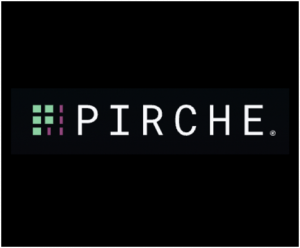Study Published in Nature Communications Reinforces Predictive Power of PIRCHE Scores in Kidney Transplant Outcomes
New evidence from over 5,000 patients challenges the utility of HLA evolutionary divergence and spotlights PIRCHE's role in guiding transplant decision-making.
It is time to embrace this new approach and change the future for all transplant patients. Changes are difficult, not changing can be fatal."”
BERLIN, GERMANY, July 3, 2025 /EINPresswire.com/ -- PIRCHE AG, a global leader in transplant bioinformatics solutions, today announced the publication of a significant study in Nature Communications titled "Impact of HLA evolutionary divergence and donor-recipient molecular mismatches on antibody-mediated rejection of kidney allografts." The research provides compelling evidence supporting the critical role of PIRCHE-T2 (PIRCHE-II) scores in predicting antibody-mediated rejection (AMR) in kidney transplant recipients.— Massimo Mangiola, NYU Langone
The large-scale, multicentric study, involving 5,159 kidney transplant recipients, rigorously assessed various immunological parameters, including HLA eplet mismatches, PIRCHE-T2 scores, and HLA evolutionary divergence (HED). A key finding demonstrated that HLA Class II eplet mismatches and HLA-DQB1 and HLA-DRB1-derived PIRCHE-T2 scores were independently associated with antibody-mediated rejection (AMR). Crucially, the study found no association between HED and AMR, suggesting its limited utility for immune-risk stratification at a population level.1
"The evidence published in Nature Communications by Dr. Demir and colleagues further reinforces the tremendous role of PIRCHE as a biomarker to independently predict risk of AMR," stated Dr. Massimo Mangiola, Clinical Associate Professor and Immunogenetics Laboratory Director at the Transplant Institute of NYU Langone. "To confirm a stringent correlation in one of the largest, multicentric, and deeply phenotyped cohorts of kidney transplant recipients is not surprising, but deeply compelling. Moreover, the lack of correlation between HLA polymorphisms (HLA evolutionary divergence) and AMR gives no further excuse to continue denying the impactful predictive power of PIRCHE and molecular compatibility. It is time to embrace this new approach and change the future for all transplant patients. Changes are difficult, not changing can be fatal."
This publication further validates PIRCHE's TxPredictor Platform, which includes applications for outcomes prediction, donor selection, risk stratification and acceptable mismatch profiling as well as T-cell memory response. These tools leverage PIRCHE-T2 and PIRCHE-B scores to provide comprehensive immune profiling, enabling more personalized patient management and optimizing immunosuppression strategies. The findings underscore PIRCHE’s commitment to advancing transplant medicine and improving long-term patient outcomes.
About PIRCHE AG
PIRCHE AG is a leading provider of digital molecular diagnostic solutions for transplant medicine. The company's mission is to improve the lives of transplant patients by providing innovative and accurate diagnostic tools. PIRCHE is headquartered in Grünwald, near Munich, and has offices in Boston, Berlin, and Utrecht. To learn more about PIRCHE's breakthrough technology and how it can support better patient outcomes, visit PIRCHE.com.
1. Demir Z, Raynaud M, Divard G, Louis K, Truchot A, Niemann M, Ponsirenas R, Aubert O, Del Bello A, Hertig A, Anglicheau D, Dale B, Kamar N, Mangiola M, Zeevi A, Lefaucheur C, Loupy A. Impact of HLA evolutionary divergence and donor-recipient molecular mismatches on antibody-mediated rejection of kidney allografts. Nat Commun. 2025 Jul 1;16(1):5692. doi: 10.1038/s41467-025-60485-y. PMID: 40592858; PMCID: PMC12219110.
Scott Henderson
PIRCHE AG
email us here
Visit us on social media:
LinkedIn
YouTube
Legal Disclaimer:
EIN Presswire provides this news content "as is" without warranty of any kind. We do not accept any responsibility or liability for the accuracy, content, images, videos, licenses, completeness, legality, or reliability of the information contained in this article. If you have any complaints or copyright issues related to this article, kindly contact the author above.

